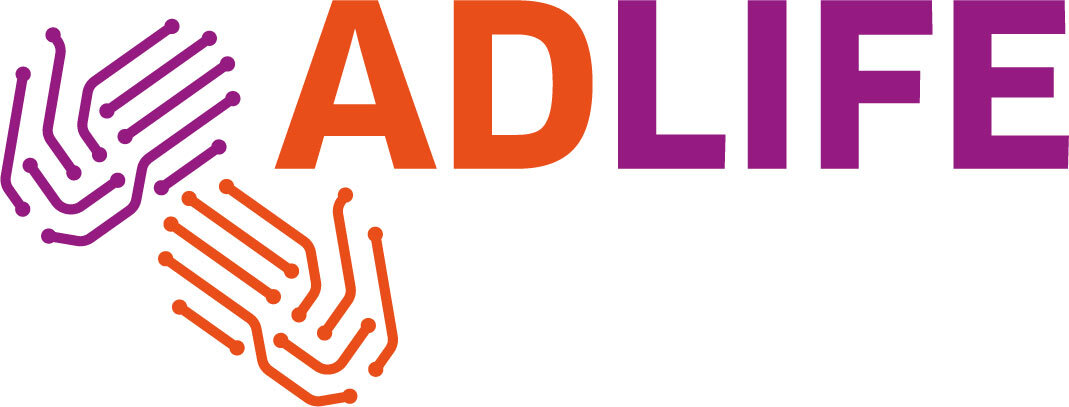Supporting caregivers for ageing populations
For #InternationalCaregiversDay - ADLIFE explores the role and experiences of caregivers for individuals with chronic diseases, highlighting the importance of including caregivers in our project.
Caregivers are a family member, friend, or significant individual who assists with a patient’s daily care needs (1). In the UK, the economic value of carer contribution is £132 billion per year, almost the total value of health spending in the UK in 2014-2015 (2). However, despite their integral role in supporting the health and lives of individuals, there is a growing issue in the mental health, physical health, and financial burden for caregivers of older adults (1).
As populations age globally and medical innovations advance, associated chronic diseases and comorbidities are increasing. Cardiopulmonary disease and chronic obstructive pulmonary disease (COPD) are a primary cause of illness (3), with affected individuals facing permanently or fluctuating reduced functionality and capabilities. Cardiovascular disease alone is responsible for 45% deaths in Europe (4), whilst COPD represents the third most likely cause of death worldwide (5). Amongst challenges such as maintaining quality of living for the patient, and creating sustainable healthcare and social care systems, there is a great need to develop support for caregivers who are facing an increasing burden.
The impact of caregiving for individuals with heart failure and COPD is long-lasting, turbulent and unpredictable, leading caregivers to make constant adjustments and assessments to their role (3). These effects have been identified in caregivers regardless of age, gender, and ethnicity, and in particular influence caregivers’ psychological and physical health (3).
In an online questionnaire reviewing the experiences of COPD through patient and caregiver narratives, 53% of the 55 caregivers reflected that COPD had an impact on their working life, and demanded clearer instructions and training on patient care, as well as psychological support (5). Matarese et al. (2021; 6) recently evaluated the experiences of caregivers in their contribution to COPD patient self-care, and highlighted their complex contribution to patient disease management, stability, and sustain of daily activities. However, this contribution is often in isolation from the disease management offered by nurses, highlighting a need for better integration and inclusion of caregivers as allies in patient care (6). Overall, the literature regarding caregivers of ageing populations with chronic diseases, highlight their unique skillset and expertise in individualised patient care, and the importance of acknowledging their role in the healthcare interventions of these conditions (3).
In the ADLIFE project, we recognise the importance of fully integrating caregivers into care delivery and pathways. Our project aims to support older patients with progressive chronic diseases and their informal carers in their own home and community settings. We have developed a unique digital platform, known as the ADLIFE toolbox, which includes tools such as the patient empowerment platform (PEP) to enable patients, health professionals, and caregivers to manage patient health and care within their day-to-day activities and interactions. We are evaluating the impact of the ADLIFE Toolbox by collecting various outcome data with patients and caregivers.
To learn more about this initiative, you can read more about the PEP here, or about the benefits of the project for patients and their informal caregivers here.
REFERENCES:
Faronbi, J. O., Faronbi, G. O., Ayamolowo, S. J., & Olaogun, A. A. (2019). Caring for the seniors with chronic illness: The lived experience of caregivers of older adults. Archives of gerontology and geriatrics, 82, 8–14. https://doi.org/10.1016/j.archger.2019.01.013
Buckner, L; Yeandle. S (2015) Valuing Carers 2015 The rising value of carers’ support. University of Leeds. https://www.carersuk.org/for-professionals/policy/policy-library/valuing-carers-2015
Noonan, M. C., Wingham, J., & Taylor, R. S. (2018). 'Who Cares?' The experiences of caregivers of adults living with heart failure, chronic obstructive pulmonary disease and coronary artery disease: a mixed methods systematic review. BMJ open, 8(7), e020927. https://doi.org/10.1136/bmjopen-2017-020927
Wilkins E, Wilson L, Wickramasinghe K, Bhatnagar P, Leal J, Luengo-Fernandez R, Burns R, Rayner M, Townsend N (2017). European Cardiovascular Disease Statistics 2017. European Heart Network, Brussels.
Gatti, V., Banfi, P., Centanni, S., D'Antonio, S., Giustini, S., Piraino, A., Zibellini, M., & Marini, M. G. (2018). Enlightening chronic obstructive pulmonary disease through patients' and caregivers' narratives. International journal of chronic obstructive pulmonary disease, 13, 3095–3105. https://doi.org/10.2147/COPD.S172214
Matarese, M., Pendoni, R., Piredda, M., & De Marinis, M. G. (2021). Caregivers' experiences of contributing to patients' self-care in Chronic Obstructive Pulmonary Disease: A thematic synthesis of qualitative studies. Journal of advanced nursing, 77(10), 4017–4034. https://doi.org/10.1111/jan.14942





